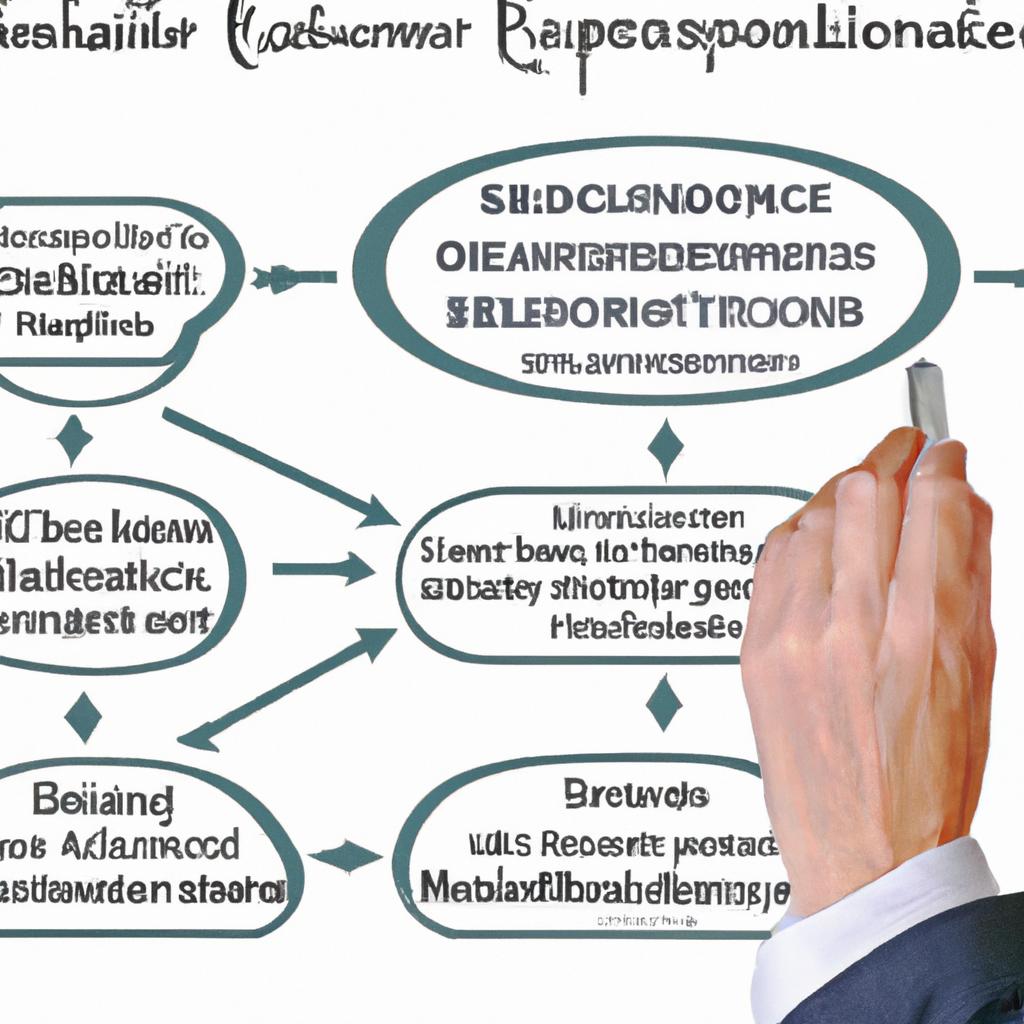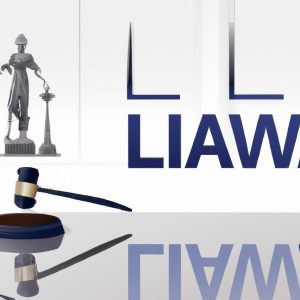When discussing the intricacies of estate planning and administration, one term that often arises is “bonded for an estate.” While this concept may seem daunting to those unfamiliar with legal jargon, understanding what it means to be bonded for an estate is crucial for ensuring the proper management and distribution of assets. In this article, we will delve into the significance of being bonded for an estate, exploring its implications and responsibilities within the realm of estate law. Join us as we unravel the complexities of this essential legal requirement.
Understanding the Legal Implications of Being Bonded for an Estate
Being bonded for an estate is a significant responsibility that comes with legal implications that individuals must fully understand. When someone is bonded for an estate, they are essentially providing a form of financial protection for the beneficiaries of the estate. This bond serves as a guarantee that the individual will fulfill their duties and responsibilities in administering the estate in accordance with the law.
Additionally, being bonded for an estate means that the individual is financially liable in the event that they fail to carry out their duties properly or if there are any financial losses incurred due to their actions. It is crucial for individuals to be aware of the legal implications of being bonded for an estate and to ensure that they have a clear understanding of their obligations and responsibilities in order to avoid any potential legal issues.

Key Responsibilities and Obligations of Being a Bonded Estate Executor
As a bonded estate executor, you carry the important responsibility of managing the assets and affairs of the deceased individual’s estate in a trustworthy and reliable manner. This involves adhering to a strict set of obligations and duties to ensure that the estate is properly handled and distributed according to the wishes of the deceased and in compliance with the law.
One key responsibility of being a bonded estate executor is to accurately inventory and appraise all of the decedent’s assets and properties. This includes identifying and valuing real estate, personal belongings, financial accounts, investments, and any other valuable assets. Additionally, you must handle any outstanding debts or liabilities of the estate, pay any taxes owed, and distribute the remaining assets to the designated beneficiaries or heirs as outlined in the Will or as determined by the probate court.

Navigating the Process of Obtaining a Bond for Estate Administration
Being bonded for estate administration is a crucial aspect of the process that ensures accountability and protection for all parties involved. A bond is essentially a form of insurance that guarantees that the executor or administrator of an estate will fulfill their duties and responsibilities in accordance with the law.
When someone is bonded for an estate, it means that they have obtained a surety bond from a reputable bonding company. This bond serves as a financial guarantee that the executor will properly manage the assets of the estate, pay off debts, and distribute the remaining assets to the rightful beneficiaries. If the executor fails to fulfill their duties, the bonding company will step in to compensate the estate for any losses incurred.

Ensuring Compliance and Minimizing Risks as a Bonded Estate Representative
Being bonded as an estate representative carries significant responsibilities and obligations. When you are bonded, you are essentially providing a financial guarantee that you will fulfill your duties ethically and in accordance with the law. This bond serves as a form of protection for the heirs and beneficiaries of the estate, as it ensures that their interests are safeguarded throughout the probate process. By obtaining a bond, you demonstrate your commitment to transparency, accountability, and integrity in handling the affairs of the estate.
One key advantage of being bonded as an estate representative is the mitigation of risks associated with potential conflicts of interest or mismanagement of assets. Being bonded can help minimize the likelihood of disputes arising among beneficiaries, as it provides a layer of assurance that the estate will be administered in a fair and responsible manner. In the event that disputes do arise, the bond can serve as a source of financial recourse for any damages incurred. Ultimately, being bonded not only protects the interests of the estate and its beneficiaries but also helps to establish trust and credibility in your role as a representative.
Q&A
Q: What does it mean to be bonded for an estate?
A: Being bonded for an estate means that someone has been appointed by a court to oversee the financial affairs of a deceased individual. This person, known as the executor or personal representative, must obtain a bond to ensure that the assets of the estate are properly managed and distributed.
Q: Why is being bonded for an estate necessary?
A: Being bonded for an estate is necessary to protect the beneficiaries and creditors of the estate from potential mismanagement or fraud by the executor. The bond serves as a form of insurance that guarantees financial compensation in case the executor fails to fulfill their duties properly.
Q: How does one become bonded for an estate?
A: To become bonded for an estate, the executor must apply for a surety bond through an insurance company. The cost of the bond is typically based on the value of the estate and the executor’s creditworthiness. Once approved, the executor is required to pay an annual premium to maintain the bond.
Q: What are the responsibilities of someone bonded for an estate?
A: The responsibilities of someone bonded for an estate include inventorying the assets of the deceased, paying bills and taxes on behalf of the estate, distributing assets to beneficiaries according to the will or state law, and providing an account of their actions to the court.
Q: Are there risks associated with being bonded for an estate?
A: Yes, there are risks associated with being bonded for an estate. If the executor mismanages the assets of the estate or acts fraudulently, they can be held personally liable for any financial losses. The bond provides financial protection for the beneficiaries and creditors in such cases.
Final Thoughts
In conclusion, being bonded for an estate is a significant responsibility that should not be taken lightly. It involves ensuring that the wishes of the deceased are carried out properly and honestly, with transparency and accountability. By being bonded for an estate, you are essentially committing to upholding the integrity of the estate and acting in the best interests of all parties involved. It is a role that requires trust, integrity, and a high level of ethical conduct. So whether you are an executor, administrator, or trustee, remember that being bonded for an estate is not just a title, but a commitment to honor the legacy of the deceased and uphold their wishes with dignity and respect.
 Keep the bustling life and countless responsibilities aside – have you ever thought of what would happen to your estate after you pass away? Who would manage it? Who would ensure that your last wishes are fulfilled and your assets are distributed according to your will? This is where the concept of being “bonded for an estate” comes into play.
Keep the bustling life and countless responsibilities aside – have you ever thought of what would happen to your estate after you pass away? Who would manage it? Who would ensure that your last wishes are fulfilled and your assets are distributed according to your will? This is where the concept of being “bonded for an estate” comes into play.
Being “bonded for an estate” essentially means that a person or entity has been granted the legal responsibility to manage and distribute an estate after the owner’s death. In other words, they are appointed as an executor or administrator of the estate, entrusted to carry out the deceased’s final wishes and handle the financial affairs of the estate.
In this article, we’ll delve deeper into the meaning and importance of being bonded for an estate, as well as its benefits and practical tips. We’ll also touch upon some case studies and first-hand experiences to give you a better understanding of this crucial topic.
What does it mean to be bonded for an estate?
Being bonded for an estate is a legal concept that is closely associated with the management and distribution of a deceased person’s estate. When someone passes away, their estate goes through a legal process known as probate. During this process, the court appoints an executor or administrator to oversee the distribution of assets according to the deceased’s will or state laws.
The executor or administrator, also known as the personal representative, is responsible for managing the estate’s assets, paying off debts and taxes, and distributing the remaining assets to the beneficiaries. This is where the concept of being bonded comes into play.
Being bonded means that the personal representative has been granted a bond, which is essentially an insurance policy that protects the estate’s beneficiaries from any financial losses caused by the executor’s or administrator’s actions. This bond serves as a safety net to ensure that the estate is managed and distributed efficiently and effectively.
Types of bonds for estates
There are two main types of bonds that a personal representative may be required to have: a probate bond and a fiduciary bond.
A probate bond, also known as an executor’s bond, is required in cases where the deceased had a will and named an executor to manage their estate. This bond ensures that the executor will fulfill their duties and obligations as outlined in the will and protect the beneficiaries from any potential losses.
A fiduciary bond, on the other hand, is required when the deceased did not have a will or did not name an executor. In such cases, the court will appoint an administrator to manage the estate and ensure that its assets are distributed according to state laws. This bond serves the same purpose as a probate bond, protecting the estate’s beneficiaries from any financial losses.
The amount of the bond is usually determined by the estate’s total value, and the personal representative may have to pay a premium for it.
Benefits of being bonded for an estate
1. Protection for beneficiaries
The main benefit of being bonded for an estate is the protection it provides for the estate’s beneficiaries. It ensures that the personal representative will fulfill their duties and responsibilities without any ulterior motives or potential fraud. If the personal representative fails to do so, the bond will compensate the beneficiaries for any resulting financial losses.
2. Assurance to the court and creditors
Being bonded also provides assurance and peace of mind to the court and creditors. It shows that the personal representative has undergone a thorough screening process and is trustworthy and financially responsible. This bond serves as a guarantee that the estate’s assets will be managed and distributed according to the law.
3. Professionalism and credibility
Being bonded for an estate also reflects a level of professionalism and credibility. It shows that the personal representative is qualified and competent to manage an estate’s financial affairs, providing reassurance to the beneficiaries and the court.
Practical tips for choosing the right bond for an estate
1. Understand the state laws
Before appointing a personal representative for your estate, it’s crucial to understand your state’s laws regarding being bonded. Some states may require only a probate bond, while others may require both a probate and a fiduciary bond. Knowing the requirements beforehand will help you make the right decision and ensure a seamless probate process.
2. Choose a reputable bonding company
When it comes to choosing a bonding company, it’s essential to do your research and select a reputable and reliable one. Look for companies with experience in estate bonding, good reviews, and a track record of fulfilling their obligations promptly. A reputable bonding company will have your best interests at heart and provide adequate protection for your beneficiaries.
3. Read and understand the bond’s terms and conditions
Before signing any bond, it’s crucial to read and understand the terms and conditions thoroughly. Make sure you are aware of any potential exclusions or limitations of the bond, as well as the premium payment schedule. If you have any questions or concerns, don’t hesitate to ask the bonding company for clarification.
Case studies and first-hand experiences
In a recent case, a grieving family discovered that their loved one’s appointed executor had mismanaged the estate’s assets, resulting in significant financial losses. However, because the executor was bonded, the beneficiaries were able to file a claim and receive compensation for their losses.
Similarly, a personal representative shared their experience of being bonded for an estate, stating that it provided peace of mind and reassurance that they were fulfilling their duties correctly. They also mentioned that having a bond in place helped them avoid any potential conflicts or misunderstandings with the estate’s beneficiaries.
Conclusion
Being bonded for an estate is a crucial aspect of estate planning that shouldn’t be overlooked. It provides protection for the beneficiaries and serves as a guarantee that the estate will be managed and distributed according to the deceased’s last wishes. By understanding the concept and following the practical tips mentioned in this article, you can ensure a smooth and efficient probate process for your loved ones after you’re gone.







